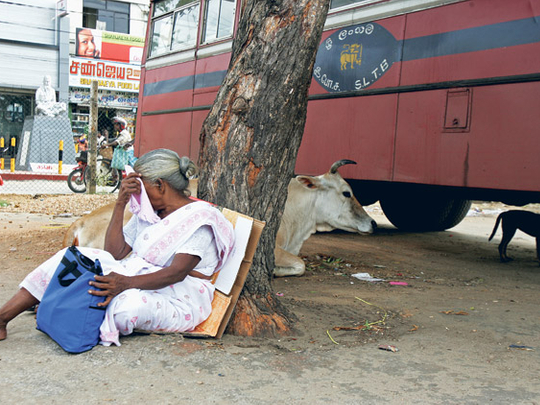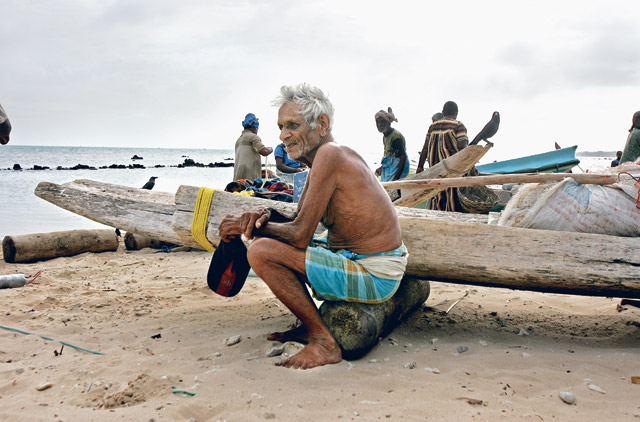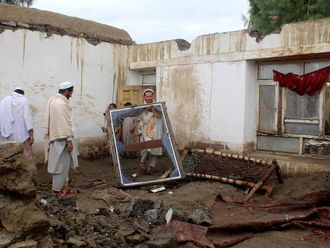
Kaithady: Sarah's smiling face lights up the dark office of this children's home on the side of the A9 on the outskirts of the small town.
"We have 40 children here," she says. "Most of them lost their parents in the fighting and there is nowhere for them to go."
The children's home is collection of outhouses, all scarred with bullet marks, with grass trying to grow on a dirt playground in the shadow of some swings badly in need of bright paint.
A lone boy sits forlornly on a long wooden bench, sad eyes looking down the driveway for parents that will never pass again through the wrought iron gates.
It's hard to get recognition from the ten year old, never mind a smile. He looks down, looks away, looks back at the driveway, still watching for parents that will never come.
We pass through some classrooms, all deserted because it's a Saturday yet still having the previous day's lessons in chalk swirls covering the pitted blackboards.
In a dormitory, 14 beds are neatly made, neatly tied mosquito nets hanging from the ceiling over the brightly coloured bed covers. Four adolescent girls suddenly self-conscious at the intrusion pose awkwardly for photographs, then go about their play as the visitors retreat.
In a kitchen, one of six full-time workers stirs a pot carefully balanced on an open-fire cooker, smoke wafting upwards through beams of light from a glassless window.
"We get no government help," Sarah says, instead relying on funding from international charities and children's aid groups.
The children will stay at the orphanage until they are 18, if all goes according to plan.
The lessons are basic, mathematics, language, basic sciences, history; girls are given basic skills in sewing.
"Some run away and there's not a lot we can do to stop them," Sarah says. "We hope to be able to provide for them, give them an education, but it's difficult. ... At least there is no more fighting."













